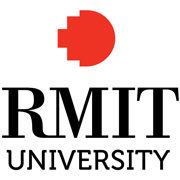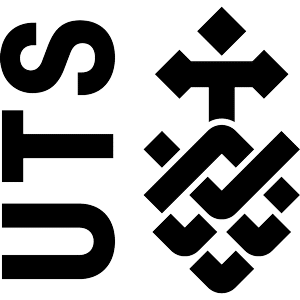Jumpstart your career as a marketer with a Graduate Certificate in Marketing online. Options include introductory and advanced courses in digital marketing.

A Graduate Certificate in Marketing is a four-subject postgraduate course aimed at current marketers or people looking to break into the field. You can do a general course or specialise in digital marketing, at beginner or advanced levels.
Why This Course Is Worth It
A postgraduate marketing certificate could represent an important step in your career. It really has the potential to open opportunities to new, interesting and well-paid lines of work.
Learning marketing requires formal education today more than ever before. Technology is changing the landscape and you can't get by on instincts and workplace learning. Increasingly, the best, most sophisticated pros are university trained.
Postgraduate courses are open to experienced professionals as well as newbies to a field. You can find a suitable course to learn the skills you need. The grad cert qualification is on a similar academic level to a degree while providing a foundation for further study.
Few people appreciate just how diverse and lucrative the available jobs are. Because marketing is crucial to business viability, demand for expertise is high across every industry. The work is sufficiently challenging and complex that many career opportunities exist, from writing content and creating ads through to crunching analytics and allocating campaign budgets.
Best Online Courses in Australia
Discover the best online marketing courses in Australia with these top-rated graduate certificate programs. From beginner-level courses to more technical ones, they are designed to help you gain the skills and knowledge to become a marketing leader in the digital age. Explore the programs offered by RMIT Online and UTS Online to find out which one is right for you.
Graduate Certificate in Marketing Online

A Graduate Certificate in Marketing is a well-balanced, general course. As well as learning about digital marketing technologies, you build skills in areas such as pricing, consumer insights, marketing research, management and communications.
RMIT Online - Marketing
RMIT Online's Graduate Certificate in Marketing is a principles-based course that serves as a pathway to a masters degree. Students gain classic skills and knowledge, learning about consumer behaviour, campaign management, market research and communication strategy. Each subject takes just 7 weeks of 100% online study. The course is part-time and designed with working professionals in mind. After completing the four subjects, you can continue the program and go for a Master of Marketing. To gain entry, you should have a degree (any discipline) or 5 years of job experience.
Digital Marketing (Beginner)

If you don't come from a marketing background and want to learn about digital marketing, there is still a course for you. A beginner-level course is appropriate if you haven't studied marketing before. You come away with sound working knowledge of the discipline. As well, you have an educational platform for advanced studies.
UTS Online - Marketing and Digital Strategy
The 100% online course in Marketing and Digital Strategy from UTS online gives you the foundational skills and knowledge to drive strategies. This program is designed for those with a non-marketing background – such as journalism, content creation or retail management – who want to gain a foundational understanding of concepts used by marketers. Through this course, you’ll develop core capabilities to become an adaptive professional and prepare for the future of marketing. Upon completion, you will have the required subject experience to qualify for entry to the Master of Digital Marketing.
Digital Marketing

For those with a strong interest in digital marketing, a specialist course is a great way to gain knowledge. Students learn how to take advantage of channels such as online search, social media, email, company websites, display ads and blogging.
A digitally orientated course may be more technical than a regular program but the field is relevant to almost every marketer. Students explore online technologies and data metrics, along with customer experience, business strategy and campaign management.
UTS Online - Digital Marketing
This specialist digital marketing course gives you the foundational skills and knowledge to be a strategic leader in the field, regardless of your industry. The program is suitable for those with a background in marketing who want to upskill. Students build confidence in data-driven strategy, and learn how technology shapes consumer behaviours and branding. Upon completion, you’ll have the opportunity to enrol into the Master of Digital Marketing, where you’ll develop the strategic, future-focused skills to lead teams.
RMIT Online - Digital Marketing Leadership
The Digital Marketing Leadership course from RMIT Online will help you harness the power of online technologies. Students learn how to wrangle the multitude of platforms, apps, technologies and tools to produce positive, personalised customer experiences. As well, there is an emphasis automation, data connection and strategic partnerships. The 4-subject course takes 8 months of study, with each unit completed in a 7-week teaching block. Graduates come away with the ability to implement a well-organised and cost-effective promotion strategy.
What You'll Study (Course Structure)
The course structure reflects whether the program is meant to be introductory or for experienced marketers. As well, you can have a stronger emphasis on digital marketing topics for specialised courses. Here are example subject lists.
The basic course at RMIT University consists of these four subjects:
- Mktg Management
- Consumer Behaviour
- Mktg Communication Strategy
- Mktg Research
The Digital Marketing Leadership course consists of:
- Customer First Digital Mktg
- Consumer Analytics
- Mktg Technologies
- Leading Digital Transformation in Mktg
The UTS digital marketing grad cert is comprised of these four subjects:
- Digital Mktg Today
- Digital Customer Behaviour
- Data-Driven Mktg
- Branding in the Digital World
The Marketing and Digital Strategy course consists of two core subjects and two electives:
- Customer Centric Mktg (core)
- Consumer Insights (core)
- Data-Driven Mktg (elective)
- Digital Customer Behaviour (elective)
- Digital Mktg Today (elective)
- Branding in the Digital World (elective)
Learning Outcomes
Learning outcomes depend on the specialisation and/or your choice of electives. With a well-rounded course, you should be able to achieve these kinds of competencies.
Consumer insight and analytics
Develop approaches to using data analytics to profile consumers, understand consumer behaviour, and optimise campaign efforts.
Digital marketing strategies
Design an online strategy, accounting for organisational technology capability and characteristics of the product and target audience.
Marketing research
Develop and execute market research plans, including research project design, and data collection and sampling techniques.
Strategic marketing
Define strategic objectives and apply meaningful performance indicators to shape and motivate campaign activities.
Career Opportunities

You can use a grad cert to upskill if you're a professional already or wanting to break into the field. In both cases, the course is also a platform for a graduate diploma or masters. Graduate certificates are flexible in terms of content and purpose.
The course will potentially open up career opportunities by giving you new, highly-relevant skills and knowledge, plus a university qualification. Demand for Advertising and Marketing Professionals is strong, with employment in Australia projected to expand by 11.4% to 89,000 over the 5 years to 2027.
Job titles in the industry include marketing assistant, marketing manager, digital marketing manager, campaign manager, content creator, brand manager, and customer success manager.
Entry Requirements

The basic entry requirements for a postgraduate program are that you have a bachelor degree in any discipline. If you lack a degree, you may still be considered based on extensive professional experience.
For advanced programs, you need a marketing or business background. You can show this using academic qualifications and/or professional experience.
RMIT Online
At RMIT University, the entry requirement for a foundations-type course is a bachelor degree or equivalent (or higher-level qualification) in any discipline.
You may also be considered if you have 5 years of relevant work experience.
UTS Online
At UTS, applicants must have a bachelor’s degree or an equivalent or higher qualification OR evidence of general and professional qualifications that demonstrate ability to complete postgraduate studies.
Applicants not meeting the academic requirement may still be considered based on having 4 years of relevant business-related work experience.
RMIT Online
Prospective students need either:
- an Australian bachelor degree or equivalent, or higher-level qualification, in any discipline AND two years of experience working in a marketing role; OR
- no qualification but 5 years of full-time experience working in a relevant role.
UTS Online
You must have at least one of the following:
- a bachelor degree in Marketing or a related business discipline such as Commerce or Management
- a bachelor degree and 2 years of full-time (or equivalent) relevant marketing work experience
- four years, or equivalent, relevant work experience and the capacity for doing tertiary education.
RMIT Online
Tuition fees are $3,720 - $3,960 per subject in 2023.
Intakes are available in Jan, Mar, May, July, Aug, Oct.
UTS Online
Tuition fees are $3,996 per subject in 2023.
Intakes occur in Jan, Mar, May, July, Sept, Oct.
FEE-HELP
FEE-HELP loans from the Australian Government are automatically available to eligible Australian students doing accredited postgraduate courses. They cover course fees and may be paid off gradually, with the rate depending on your annual taxable income.
Fully online courses are unavailable to international students in Australia on a student visa.
English language proficiency requirements apply for international student applicants lacking qualifications taught in English.
FAQs
Marketing can be a rewarding occupational choice if you’re looking to build a career in a challenging and in-demand field. As Australia’s Labour Market Insights website reports, marketing roles enjoy “very strong” job growth.
Employers are constantly looking to recruit for entry and senior-level marketer positions. For instance, roughly 37% of companies plan to increase headcount in marketing, advertising, and direct promotion roles this year. As a result, the discipline can be a great option to launch or further your professional career.
The profession is also highly versatile. Gaining a marketing degree can lead to a variety of high-paying and sought-after careers. Professionals are typically equipped with a business-relevant skillset that finds application across multiple functions such as data analytics, sales, advertising, and business development.
Financial rewards are also available. Marketing jobs are amongst the highest-paying positions tracked by the Bureau of Labour Statistics. According to recent data, marketing majors may earn between $50,000 to $208,000 per year. Sales and marketing managers have some of the highest median annual salaries, earning between $130,000 and $140,000 a year.
Related: Is a Marketing Degree Worth It?
A Graduate Certificate in Marketing is similar to other business graduate certificates. The qualification works both as a career booster and launcher. Students who already hold a business degree can do specialised learning. Introductory courses are open to graduates from any discipline who are looking to shift careers.
The grad cert develops knowledge and skills to be a marketer, providing detailed instruction on strategy, use of online platforms, market research, and consumer insights for example. Graduates gain a head start in understanding and applying specialist skills compared to people without postgraduate qualifications.
Options for further study
A grad cert also provided a great alternative if you’re not ready to commit the time and money required for a marketing master’s degree or an MBA in digital marketing. Optionality is one of the key benefits of graduate certificates.
You’ll gain some of the knowledge you would learn in a master’s program, and you may be able to qualify for similar roles. Plus, if you eventually choose to get a master’s degree, you can likely apply the credits you earned to that or towards the in-between graduate diploma qualification.
A number of specialisations are attracting attention due to their high demand from businesses and popularity among students. Here are the top seven in-demand roles in the sector currently, according to the Digital Marketing Institute (DMI):
- Content management and strategy: With the explosion of new platforms from TikTok to YouTube Shorts, companies face a greater than ever demand for content. Therefore, the task of planning, crafting, launching, sharing, and monitoring that content has grown in significance and market need.
- VR development and editing: Virtual and augmented reality represent immense marketing opportunities for companies today, especially with the growing interest in the metaverse.
- SEO and SEM: Search engine marketing continues to be an indispensable part of internet marketing strategy, and anyone who can demonstrate expertise in this area may enjoy excellent career prospects.
- UX design: With the growing focus on user experience, UX designers are more sought after and better paid. According to PingPong research, the average yearly salary for UX designers is $97,000.
- Email marketing: Email remains one of the most effective channels available, and those who are technically proficient here continue to be valuable for most companies.
- Management: There’s a constant market need for people to fill roles such as Director of Marketing, and that demand won’t end soon, according to DMI.
- Analytics and AI: Lastly, data analytics and AI competence continue to present an attractive prospect for candidates. The AI market is expected to be worth $360 billion by 2028. Companies actively seek those who will help them gain a slice of that market.
Each of these niches presents its advantages, and professionals in those roles can expect to do valuable and rewarding work.
Successful digital marketers exhibit a blend of technical and soft skills. For instance, they need to understand consumer behaviour and know how to plan and launch campaign strategies that resonate with audiences. They should also be accomplished communicators, creative problem solvers, and dedicated team players.
While you don’t necessarily have to excel in all the following areas, here’s a roundup of the core skills required.
Hard (technical) skills
- Search Engine Optimisation (SEO) and Search Engine Marketing (SEM)
- Analytics
- Digital technologies
- Content marketing
- Social media marketing
- Pay Per Click (PPC) and social ads
- Email marketing
Soft (non-technical) skills
- Storytelling
- Creative problem solving
- Design
- Leadership
- Adaptability
- Communication
- Strategic planning




